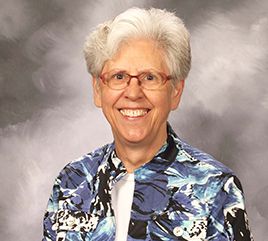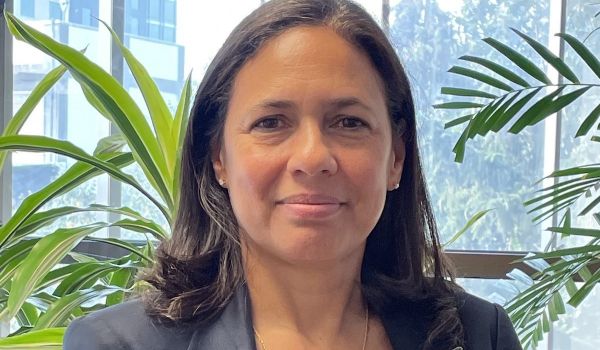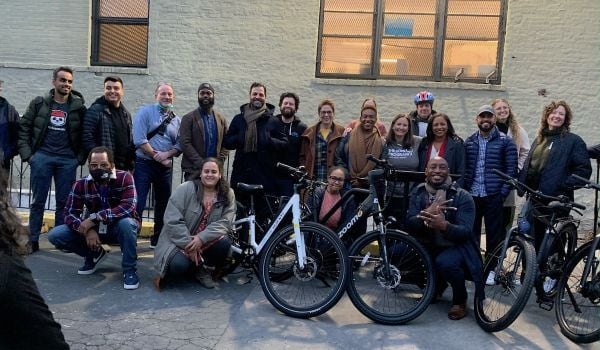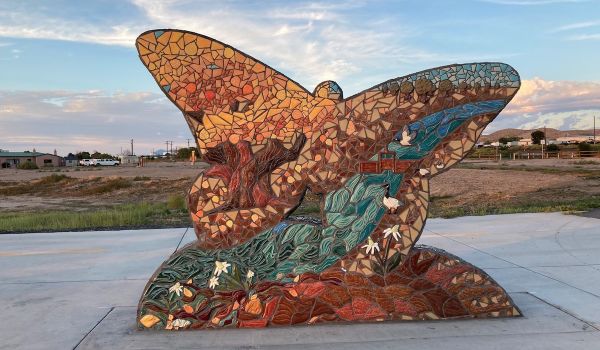Community development finance has a fierce — if a bit unlikely — advocate in Sister Corinne Florek. Florek entered the Adrian Dominican Congregation in the 60s and received her MBA in 1980. For the next 40 years, she devoted her career to addressing economic development at the community level.
That included working with Chuck Matthei at the Institute for Community Economics and serving as the director of economic development at the Catholic Campaign for Human Development in Washington DC, where she managed their low-interest loan fund. She also managed a loan fund for low-income women in San Francisco. In 2008, she helped found the Religious Communities Impact Fund (RCIF), which pools funds from 35 congregations of religious women and invests it in programs that address the needs low-income communities. Currently, the organization has more than $11 million to lend.
She retired from RCIF in 2020, but still has lots to say, some of which will be in her upcoming book on how Catholic sisters came to be involved in community investment and how others can follow their example.
She spoke to us rooting investing in community, who needs a seat at the table, and why CDFIs need to put power in the hands of the people.

Sister Corinne Florek (Photo courtesy of Sister Corinne Florek)
You’ve said before that CDFIs should not think of themselves in the same way as banks or impact investors do. Why is that, and how should they think of themselves?
I think they really need to stay close to the communities they want to serve. Why do we even have CDFIs? Because banks wouldn’t lend in these communities. So when you start acting like a bank in the very communities that are suffering, because banks won’t lend to them, that’s crazy. The point is that you’re rooted in the community. You listen to the people in the community. When CDFIs started getting a lot of bank money (it helps the bank get CRA credit), the CDFIs saw this as an opportunity to grow and do even more. My caution was to not lose your focus on being rooted in the community.
What does being rooted in community look like to you?
The community should have some influence on what happens in that organization. Yes, you need some people with technical expertise on the board, but you should also have community representatives. At this point in time, I’ve constantly been pushing them, where are the women? Where are the people of color on your boards? At RCIF, we finally got to the point where we required 50% of the board members to be women. All these years I’ve been encouraging but not forcing organizations, so now we will begin requiring it. How can you be investing in a community and not have women on your board?
Why is it important to work with organizations that affect women and or have women on their staff?
My argument is, if all you’re doing is lending to women that’s enablement. We want empowerment. Women should not just be beneficiaries; they should have a say at the table because they know what their needs are. The people who are affected need to be at the table so you hear what their real issue is. When I make a loan, I’m talking to the people directly affected. If you don’t have women on your board, if you don’t have people of color, how do you know you’re responding to the community?
As a religious Sister, how do you bring your community values into your investing?
We make these loans and establish a relationship with people. When people are in relationship and they’ve made a promise to do something, that brings responsibility and obligation. I’ve heard borrowers say, “I can’t lose the sisters’ retirement money. We gotta pay them back.” And there’s a story about the first Mercy Sister who lent money to the New Hampshire Community Loan Fund. She handed the check to the woman and she said, “you know, we expect this back.” So the sisters are not do-gooders that are throwing this money away. We are responsible investors who expect return and results. I have a very small loss percentage over the 40-something years of the three funds I’ve run. Very little money has been lost.
What role should CDFIs and other community impact investors play in bringing about economic justice?
The whole point is access to capital. We still have a major issue in these communities of access to capital. So with all the work we’ve done in almost 45 years, there are some communities that are thriving. I think of Bill Bynum and what he’s done in Mississippi. I think of Self Help Credit Union and what they’ve done in communities around the country. I think of New Hampshire. There are a lot of examples of these groups who really have changed the face of their communities. But with every economic downturn, the issues return. We don’t control the larger economy. The larger economy is still geared toward people with money making money.
You’re jaded about the term “impact investing.” Can you share more about that?
I say every investment has an impact. Why do you think we have corporate responsibility work? “Impact” has become a marketing tool. This is really about the common good. Look at that community that seems devastated and talk to people and say “what do you need?” We keep making it about the investor. When you have money, you have power. And I was very careful to say, “I’m not going to use that power. I’m handing you the power. I want to empower you. Money is just a resource and I happen to have it and you need it.” But we constantly give power to the investor, and to me that’s backwards. Power to the people!

This story is part of our series, CDFI Futures, which explores the community development finance industry through the lenses of equity, public policy and inclusive community development. The series is generously supported by Partners for the Common Good. Sign up for PCG’s CapNexus newsletter at capnexus.org.
Connie Aitcheson is a freelance writer based between Florida and Kingston, Jamaica. She worked for many years at Sports Illustrated and has been published in Essence, PTSD Journal, Cosmopolitan and espnw.com.


_600_350_80_s_c1.jpg)


_920_614_600_350_80_s_c1.jpg)
_600_350_80_s_c1.jpg)
_600_350_80_s_c1.JPG)








